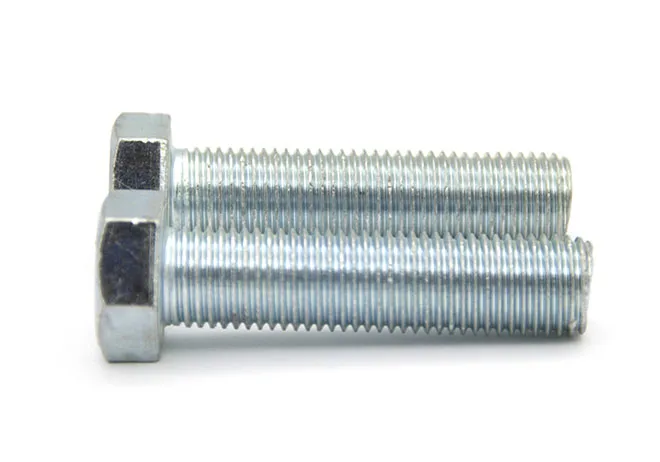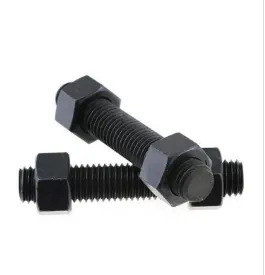truss head bolts
märts . 04, 2025 01:43 Back to list
truss head bolts
Truss head bolts, renowned for their unique, slightly rounded heads with a lower profile than other bolt types, play an essential role in varied industries. Their design offers distinct advantages, ensuring the bolt sits flush or slightly above the surface, which is particularly advantageous in tight spaces or when a smooth finish is required.
Trustworthiness in the use of truss head bolts is further reinforced by the transparency of sourcing. End users prefer reputable suppliers that emphasize traceability and standard adherence. Such suppliers not only provide reliability in product quality but also offer detailed documentation and customer support. This level of service builds confidence in clients, knowing that their projects are supported by dependable components. In terms of SEO optimization, focusing on long-tail keywords related to truss head bolts is beneficial. Phrases such as best truss head bolts for roofing panels or stainless steel truss head bolts for outdoor use can attract niche traffic seeking targeted solutions. Furthermore, integrating user-generated content, such as testimonials and reviews from industry professionals, can enrich the content with authentic experiences, increasing engagement and credibility. Educational content that informs users about installation best practices and maintenance tips for truss head bolts can also position a site as an industry leader. Offering downloadable resources or comprehensive guides not only enhances user experience but also establishes a repository of valuable information that can be referred to, thereby increasing return visits and strengthening brand loyalty. In conclusion, truss head bolts are a critical component in many construction and manufacturing applications. Their specific design, material choices, and functionality offer advantages that are invaluable in ensuring a project's success. By focusing on expertise, authoritativeness, and trustworthiness, and leveraging SEO strategies tailored to user intent, businesses can effectively reach and educate their target audience, reinforcing their market presence and credibility.


Trustworthiness in the use of truss head bolts is further reinforced by the transparency of sourcing. End users prefer reputable suppliers that emphasize traceability and standard adherence. Such suppliers not only provide reliability in product quality but also offer detailed documentation and customer support. This level of service builds confidence in clients, knowing that their projects are supported by dependable components. In terms of SEO optimization, focusing on long-tail keywords related to truss head bolts is beneficial. Phrases such as best truss head bolts for roofing panels or stainless steel truss head bolts for outdoor use can attract niche traffic seeking targeted solutions. Furthermore, integrating user-generated content, such as testimonials and reviews from industry professionals, can enrich the content with authentic experiences, increasing engagement and credibility. Educational content that informs users about installation best practices and maintenance tips for truss head bolts can also position a site as an industry leader. Offering downloadable resources or comprehensive guides not only enhances user experience but also establishes a repository of valuable information that can be referred to, thereby increasing return visits and strengthening brand loyalty. In conclusion, truss head bolts are a critical component in many construction and manufacturing applications. Their specific design, material choices, and functionality offer advantages that are invaluable in ensuring a project's success. By focusing on expertise, authoritativeness, and trustworthiness, and leveraging SEO strategies tailored to user intent, businesses can effectively reach and educate their target audience, reinforcing their market presence and credibility.
Next:
Latest news
-
Top Wire Bolts Suppliers | AI-Optimized Fast Delivery
NewsAug.02,2025
-
Top Metric Wood Screw Companies | Durable & Reliable
NewsAug.01,2025
-
Premium Lawn Mower Handle Bolts Supplier | Fast Delivery
NewsJul.31,2025
-
Premium Silver Screws Supplier | High-Conductivity Fasteners
NewsJul.31,2025
-
Silver Screws Supplier: High-Quality Fasteners for Various Industries
NewsJul.30,2025
-
Top Spike Wheel Nuts Supplier - High Quality & Custom Options Available
NewsJul.29,2025
